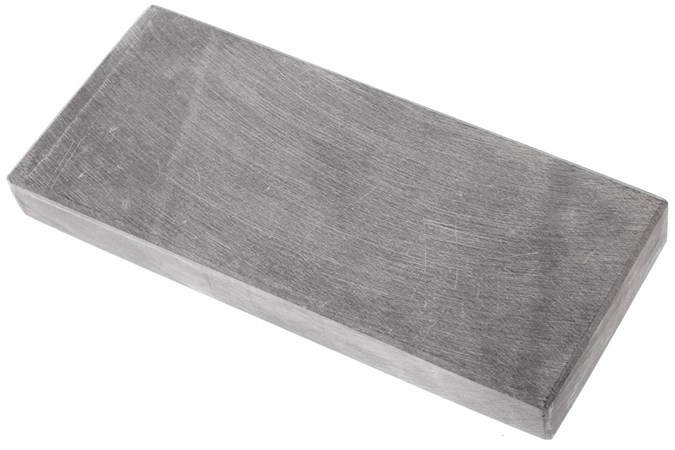FWP:
For background see S. R. Faruqi's choices. This verse is NOT one of his choices; I have added it myself, mostly for the sake of completeness. For more on Ghalib's unpublished verses, see the discussion in {4,8x}.
The polish-lines of a metal mirror are really much better material for this kind of effect, and Ghalib uses them often. Here he experiments with the hairline cracks that might occur in a wineglass if it were struck by something hard. One obvious problem is that far more often the glass would simply break into shards, so that the material for the simile would never come into existence. (Isn't it lucky that we actually have 'hairline crack' in English, to capture bāl ?)
Apparently Ghalib means to set up a piquant relationship between the tiny, almost invisible hairline cracks that may appear in a delicate wineglass when it has been damaged, and the 'veins'-- or perhaps conspicuous rubbing-marks-- that appear on a strong and heavy whetstone, as it prepares a weapon to damage something else.
I think he means to create an ominous, looming danger that grows quickly from seemingly trivial beginnings. Auden does something very similar in 'As I Walked Out One Evening':
And the crack in the tea-cup opens
A lane to the land of the dead.
Compare the hairline crack that is opened up in the porcelain sky by a flung stone in {373x,2}.
Note for meter fans: In the first line nashe has been scanned with a hamzah , as nashʾe , to make it long-short instead of short-long. This is a permissible variant. Another such instance: {28,5x}.

Zamin:
He says that 'In intoxication, be insolent in such a way that you strike the beloved's glass of wine and make cracks in it. At this ill-behavior, she will become angry; in this way the glass will become the whetstone of the sword of her coquetry and the cracks in the glass will become the veins in that stone.' That is, this insolence of yours will sharpen her anger.
== Zamin, p. 71